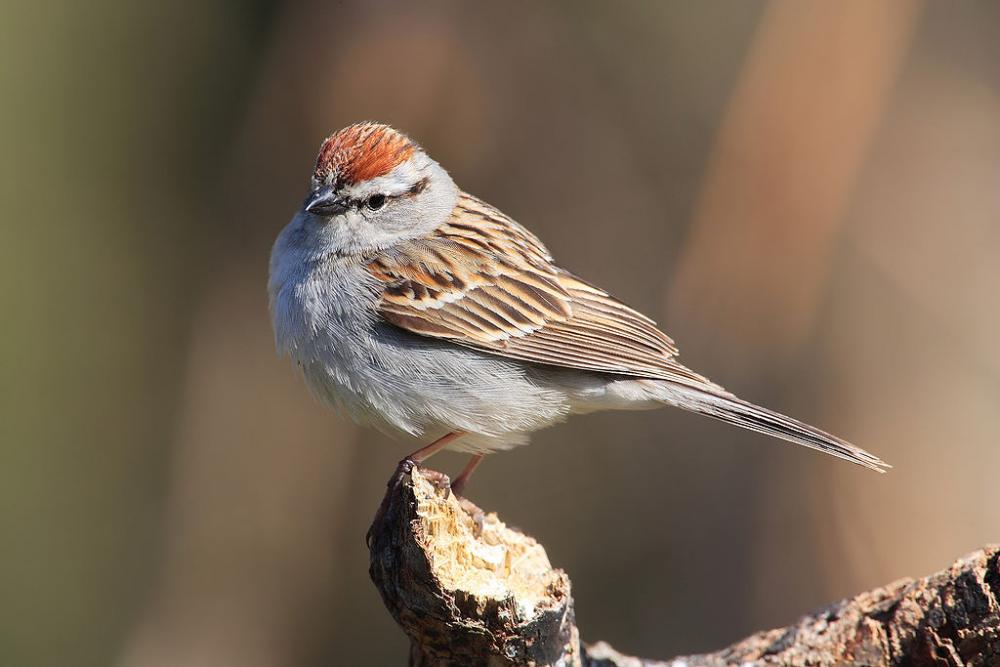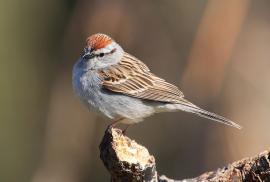Guide to Boreal Birds
Overview
The Chipping Sparrow's habit of lining its nest with hair has earned it the name "Hairbird." Formerly, it utilized horsehair, but with the decline in the use of horses it takes any hair available and will even pluck strands from the coat of a sleeping dog. Originally inhabitants of natural clearings and brushy forest borders, these sparrows are now found in gardens and suburban areas and have become familiar songbirds. During most of the year they feed on the ground, but in the breeding season males always sing from an elevated perch. Their food consists mainly of seeds, but in summer the adults and the young feed on insects.
Description
5-5 1/2" (13-14 cm). A small sparrow. Upperparts are brown, streaked with black; underparts, sides of face, and rump are gray. Adult has chestnut crown, white eyebrow, with thin black line through eye. Young birds have streaked crown, buff eyebrow, and duller underparts.
Voice
Thin musical trill, all on 1 note like the whir of a sewing machine.
Nesting
3-5 pale blue eggs, lightly spotted with brown, in a solid cup of grass and stems, almost always lined with hair, placed in shrubbery or in a tangle of vines.
Habitat
Grassy woodland edges, gardens, city parks, brushy pastures, and lawns.
Range/Migration
Breeds throughout most of continent from Yukon, Manitoba, and Newfoundland south to California, Texas, and northern Florida; also in Mexico. Winters across southern United States southward into Mexico.



